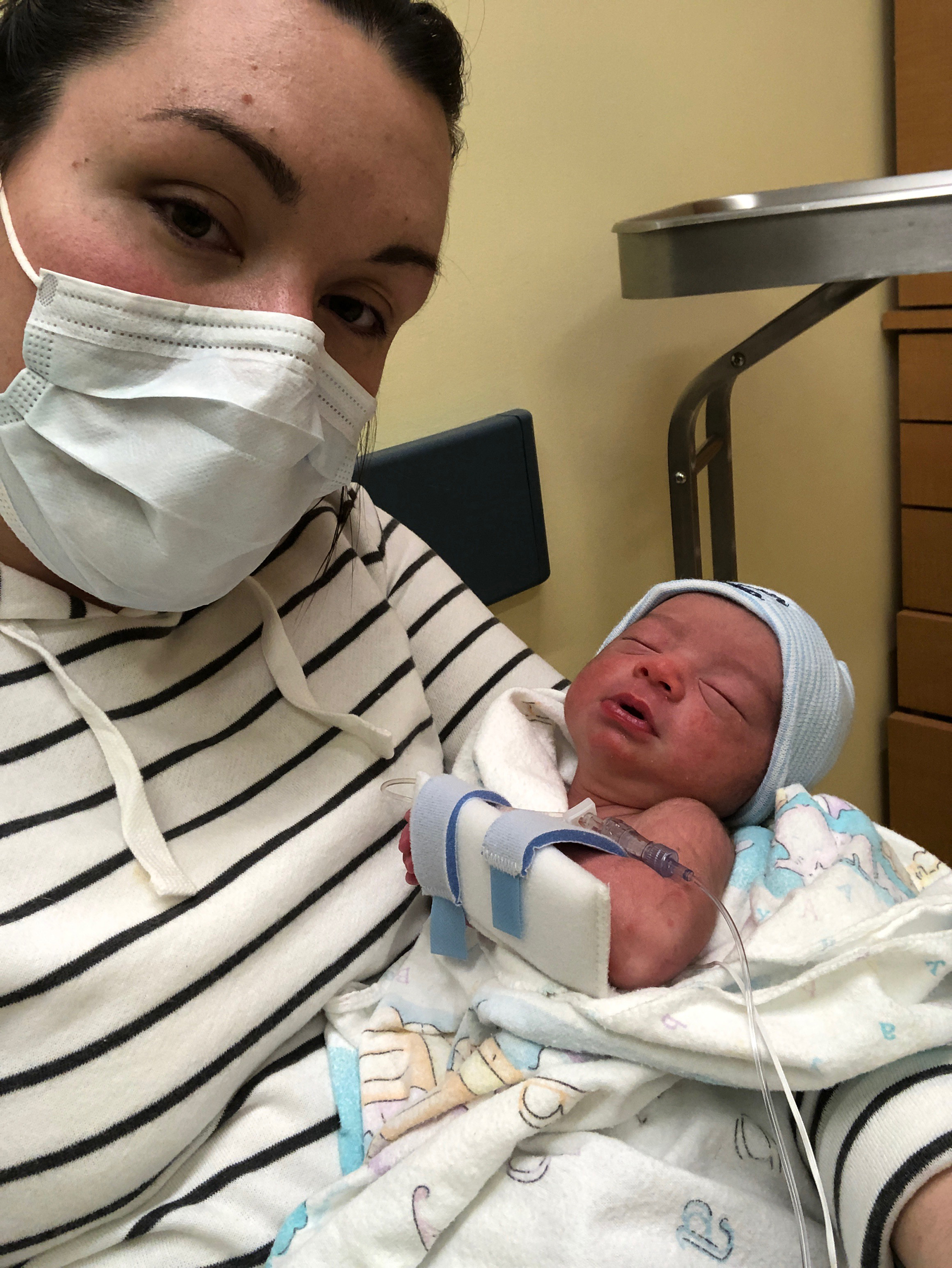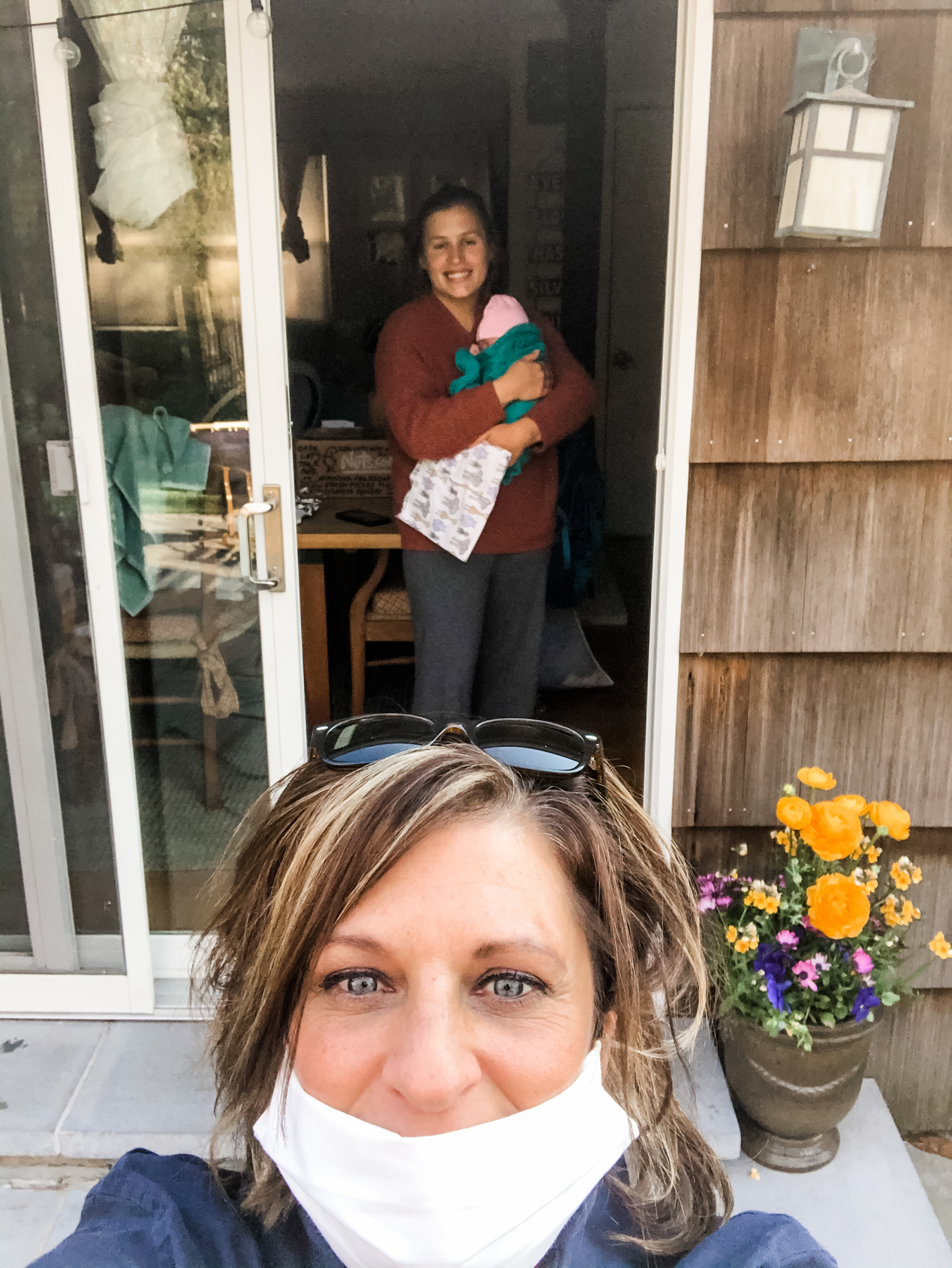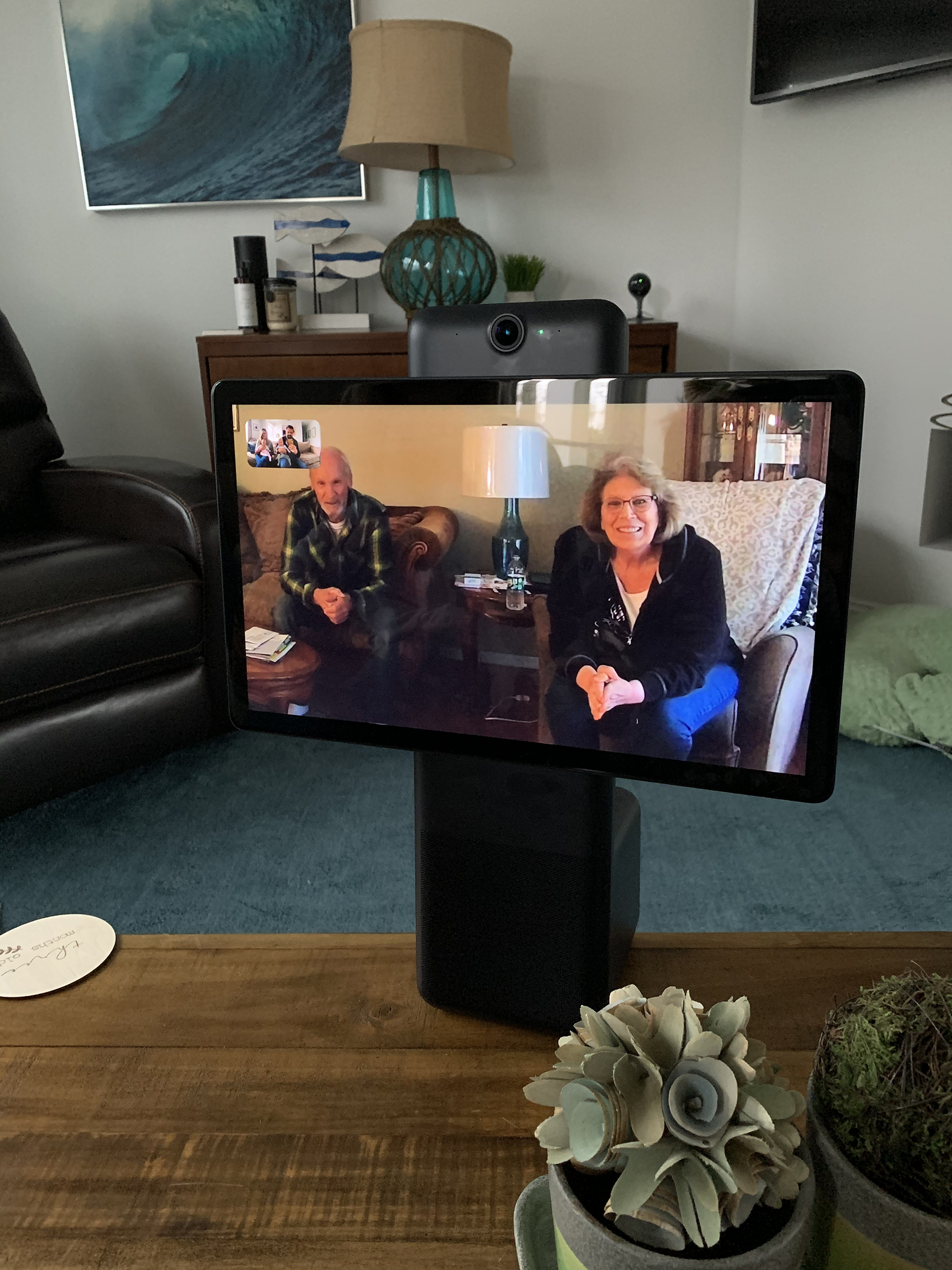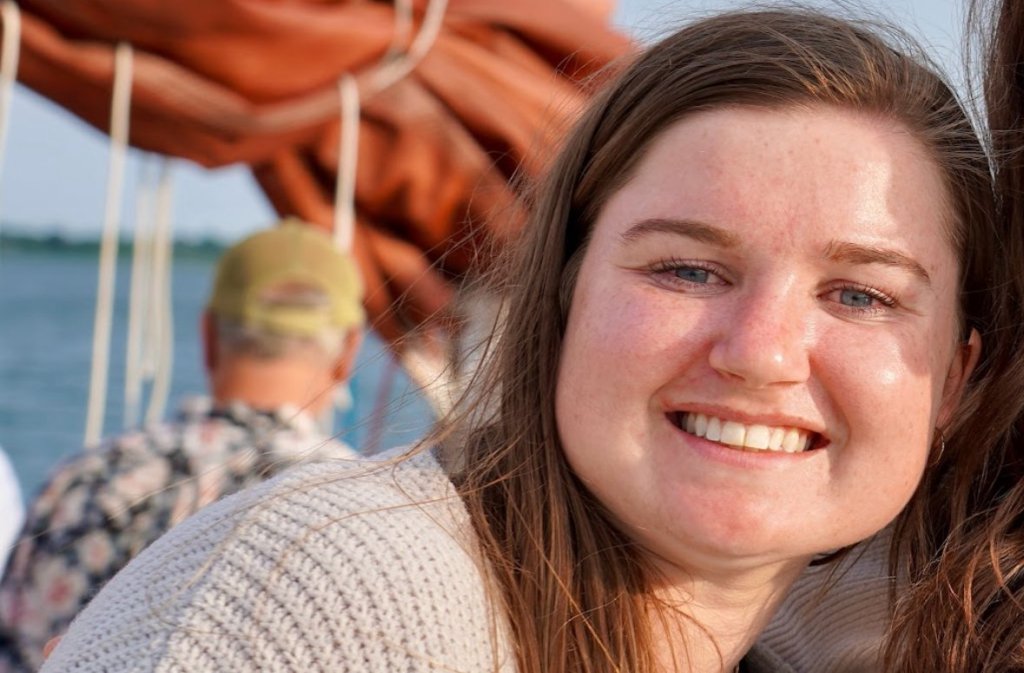Having And Caring For Babies Amid A Pandemic


Giving birth comes with many uncertainties, but giving birth during a pandemic has brought anxieties new parents experience to a whole new level.
Mallory Ibarra of Springs, already a mother of two, firmly believes she went into labor five weeks early on April 23 because she was so anxious about COVID-19. As her due date approached and the novel coronavirus’ spread ramped up, so did her nerves.
“I had many sleepless nights thinking about it,” she said, “which I think also caused prodromal labor, or false labor,” two weeks before delivery.
The possibility of exposing a newborn and herself at the hospital was concerning, and she was even more alarmed by the idea of having to give birth without family in the room.
“The thought of delivering a baby without my husband there to support me was not easy for me to process,” she said.
As New York Governor Andrew Cuomo’s PAUSE order went into effect in mid-March, her visits to the doctor’s office changed as well. She had to wait outside in the car, get screened before walking into the office, and wear a mask throughout the appointment.
“It really set off a sense of uncertainty and panic,” she said.
Ibarra began looking into having a home birth, but since she was so far along in her pregnancy — and midwives had received so many calls, she said — she was turned down.
“I was very anxious to the point where I contacted some local first responders,” she said — friends she hoped would help her deliver at home if necessary, adding her two sons came quickly once her water broke.
When the time finally came on April 23, she and her husband chose to go to Stony Brook University Hospital. It seemed like “pure mayhem,” she said. “Lots of people with masks and Lysol in hand.” They had to be screened outside of labor and delivery, where their temperatures were taken. She said they also had to sign a form attesting that they had not been exposed to COVID-19 in the last 14 days.
Forty-six minutes later, she gave birth wearing an N95 mask — hard to breathe in regularly, she said.
“Imagine while in labor,” she said. “It’s difficult to breathe.” Her husband was by her side, donning a mask and gloves.
Their third son, Román Mateo Ibarra, weighed a healthy six pounds, eight ounces at birth, but he lost 14 percent of his body weight the first day home and his parents brought him back to the hospital. He could not maintain his own body temperature and was becoming hypothermic.
He is home now, after spending one week in Stony Brook Children’s Hospital. Ibarra stayed in the room with him and her vital signs were checked twice a day to monitor her for the virus. She said she felt well protected thanks to security checkpoints and lots of screening.

First-Time Struggles
For a new mother especially, not having family around in the way one normally would was difficult. Erica Daunt gave birth to her first child, Mila, on April 20.
“The hardest part now is not being able to share her with all of them, and they are 10 minutes away,” she said.
Mila is the first grandchild on both sides of the family and they have not even been able to hold her yet. They worked out a system where they can see her in-person, from a safe distance, while wearing masks and gloves.
In fact, when the new parents brought her home from the hospital, they were sure to send a photo of her in the car seat. They arrived at their house in Springs to find family members waiting, just to catch their first glimpse of her in the car seat from six feet away.
“It was really sweet, but at the same time, it was so sad,” Daunt said. “They were so close.”
Her experience at Stony Brook Southampton Hospital was a good one, despite having to have an unexpected caesarean section when the labor was not progressing as they hoped.
“Everyone was so amazing there, very comforting. I definitely felt support — all the labor nurses and postpartum nurses,” she said.
Her husband, Anthony Daunt, did not leave the hospital for the three days his wife and newborn were there. While she thinks he would have been able to return if he did, he did not want to chance it, and they did not even need to. Some other Suffolk County hospitals do not allow the father to come back if he does in fact exit the building.
“We packed so much stuff, a bunch of food,” she said with a laugh.
While the first-time parents have not had any hands-on help, they said their families has been supportive from afar, dropping off food and giving advice over the phone.
“This is definitely going to make us stronger parents and have a stronger marriage,” she said. “Even in the last week, we’ve learned so much from each other. In the end, it will be for a reason.”

Concern For Twins
Although Christine Browe gave birth to twins ahead of the first known COVID-19 case in the United States, she and her family have still been affected by it. She gave birth to a daughter and a son on January 30 at Mount Sinai Hospital in Manhattan.
On March 15, she took the babies for a walk along the East River when she suddenly realized how difficult it was going to be to keep them away from people as the number of cases quickly rose.
“I came home and I was in tears and I said to my husband, ‘We have to get out of here,’” she recalled. They left for their house in Hampton Bays in a matter of hours, and haven’t left in seven weeks.
Derek Browe said he was concerned the children would catch the virus, even though it has not affected children as it has adults, though there have been cases.
“There is so much unknown,” he said, “so much they don’t know about the virus.”
While they love being in Hampton Bays and are thankful to be able to stay there, it has been “a roller-coaster of emotions with some pretty severe isolation feels to start,” Christine Browe said.
Portal from Facebook, a hands-free video calling device that her brother gifted them for Christmas in anticipation of the babies’ birth, has been “a godsend,” she said. They have used it to stay in touch with their parents, who have been able to watch the twins, who are changing fast, their parents say. It has left them wondering: Is all this screen time good for newborns?
How COVID-19 will affect their childhood remains to be seen.
“I think it’s a huge question for every parent,” Browe said. “Becoming a parent for the first time, for me at least, I think for both of us, reinforced importance of family and friends.”
While the twins had their first doctor visit in the city, when it was time for their vaccines, their pediatrician recommended not returning to the city. They reached out to Stony Brook Advanced Pediatric Care, which agreed to see the twins at its Center Moriches office.
Browe said she gives “major credit” to the doctors for agreeing to take on new patients “in such a time when everyone walking into their office is a risk.”
There were precautions in place. “I had to go in alone with the two of them,” Browe said of the visit where each child needed four shots. “We stupidly forgot our stroller, so I’m walking in carrying the two car seats,” she said, laughing. “Of course, we don’t have anything to compare it to.”
“The next hurdle will be four months,” she said, when her kids get their next round of shots. “We’ll see where the world is then.”
taylor@indyeastend.com




